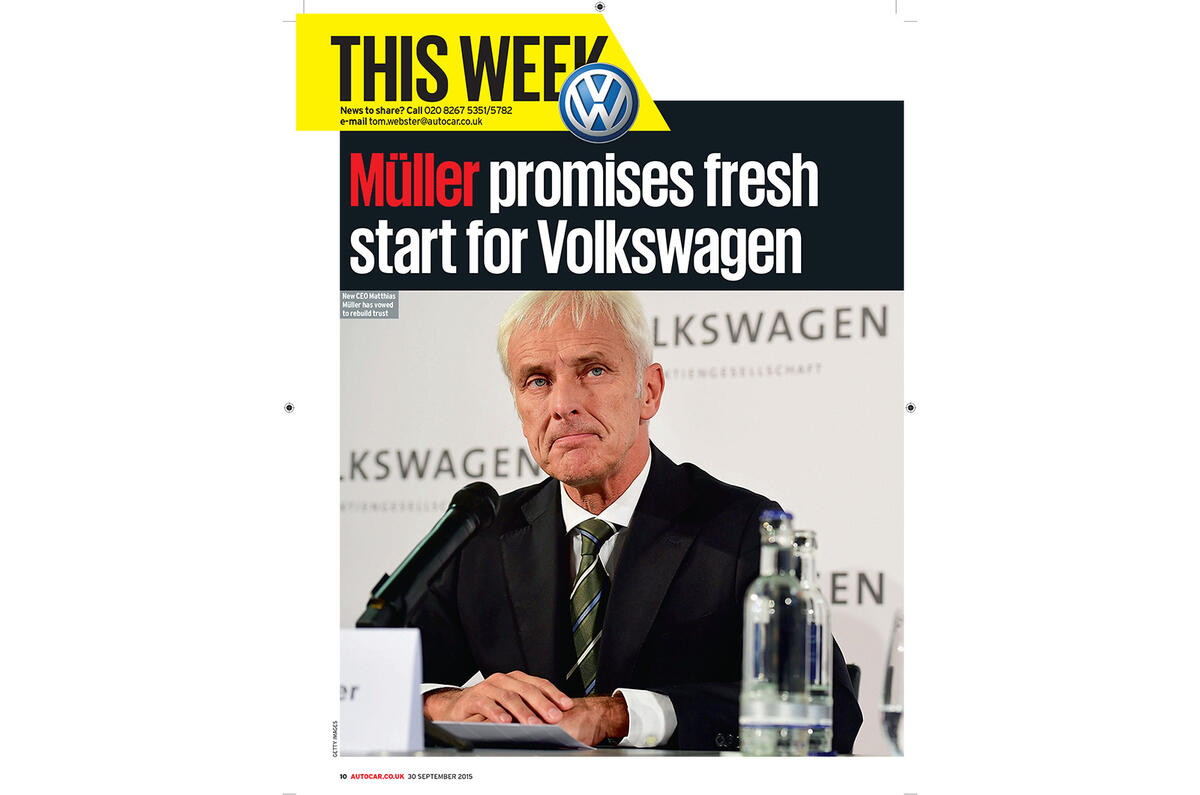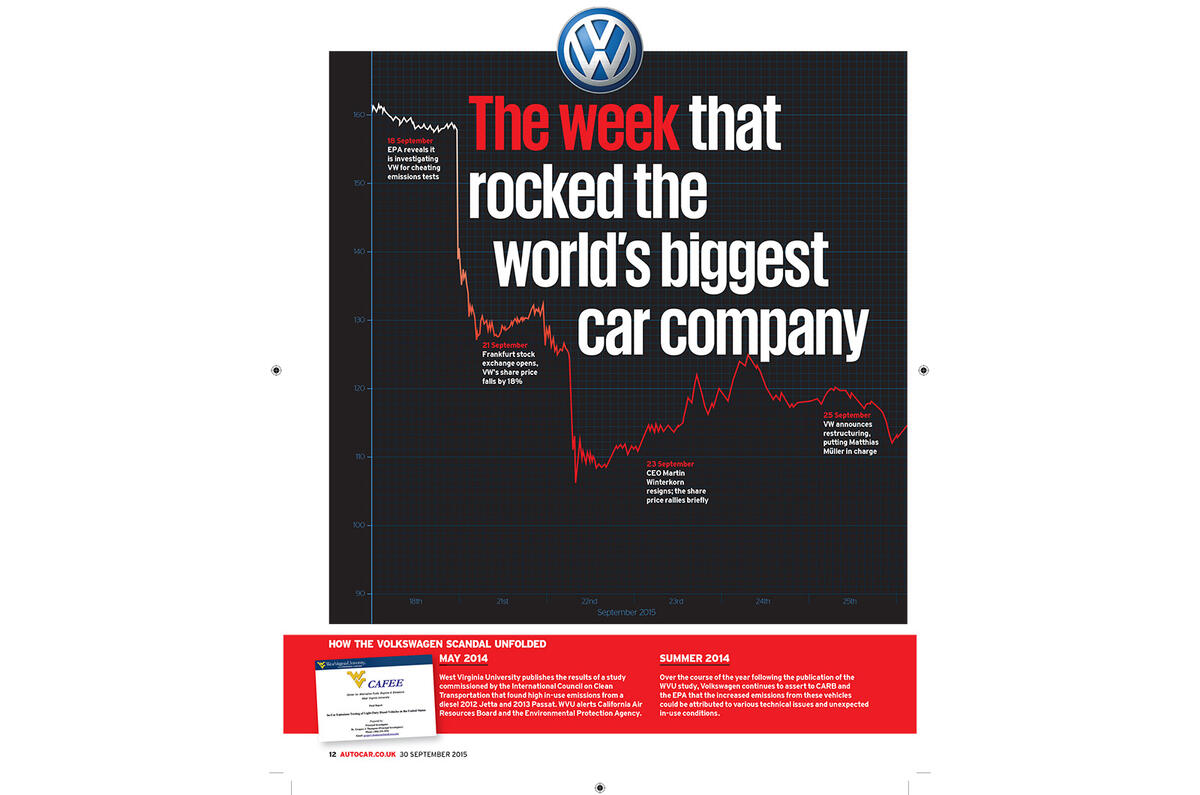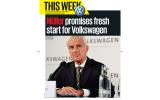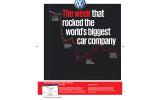Today, Friday 18 March, is six months to the day that the VW Group emissions scandal broke. In time, studies will fully map out how and why the firm chose to cheat, how it was caught and how effective its response was, but now seems as good a time as any to pause and take stock of the revelations that have emerged so far and the hurdles ahead.
What’s abundantly clear is that the scandal has barely begun. In the past month alone we’ve had the revelation that the VW Group’s management was aware of the problems as long ago as May 2014. There have been accusations that the firm believed it could buy its way out of trouble, via a large but not humiliating fine, right up until the last minute. There are suggestions that VW Group engineers were refining the cheat codes long after the firm was accused of using them. An employee has claimed that he was fired for whistleblowing. There are emerging stories that the proposed fixes are neither as effective nor coming on stream as quickly as claimed. And we’re six days from the company needing to agree a solution with US authorities, with absolutely no sign of a solution being in place.
The scandal isn't over yet
Make no mistake, the snowball of bad news that enveloped the company on 18 September is still gathering momentum; if you think the VW scandal is old news, that’s only because you’ve become immunised to it by repeated exposure to more shocking revelations, and because the VW Group PR machine has become marginally more adept at handling the fallout than it was during the calamitous early weeks.
Perhaps the biggest challenge on the horizon comes in just over a month’s time, when the VW Group is promising to publish the report of its appointed independent investigators, Jones Day, into how the scandal was allowed to happen, as well as the VW brand’s 2015 financial results.
To date, VW’s senior management has deflected probing questions by saying they must allow the investigators to do their jobs unhindered; at that point, they must not be allowed to hide as they have at recent public appearances, and the report itself must be scrutinised in the finest detail. The pie-in-the-sky distraction of launching a ground-breaking electric car by 2025 that dominated their Geneva motor show thoughts must not be allowed to be pedalled as a smokescreen again.
Even then, the story is far from over. A VW Group-appointed investigation can never be considered conclusive, and while it may shed more light on some of the more hard-to-believe claims made so far, chiefly that the cheat was the work of a tiny number of rogue engineers, there’s no doubt that higher-level legal actions around the world will seek to uncover more. Not even the well-oiled machine of one of the world’s largest companies, backed no doubt by numerous well-paid crisis advisors, will be able to stem the tide when the US legal system swings into action. My only hope is that they seek to find answers as ardently as they appear to be trying to break records for corporate fines.
Under these circumstances, it seems hopelessly optimistic to talk of the future, although, unlike some, I do believe the VW Group has one. On that, perhaps I’m naïve, because so much depends on the size of the penalties, and only a fool would try to predict just how far they will stack up. But my assertion is driven by a fundamental belief in the quality of the products that the firm makes, and the fact, proven time and again, that the majority of customers will ultimately vote with their wallets.
Car buyers care more about their wallet
In my experience, car buyers are shrewd and more focused on their pockets than the environment. They will recognise that the vast majority of issues swirling around the VW Group - although not all - are related to an off-sale diesel engine. They are shrewd enough to separate the moral bankruptcy of a company prepared to cheat emissions tests from one that has invested more in R&D in recent years than any other company on the planet, in the pursuit of building better cars.
They will scrutinise rivals and come to the same conclusion as our testers, that in many cases VW Group products are the best in class across a huge range of facets, including emissions in some cases. Most likely, too, the VW Group will maintain its rollout of incentives to retain loyal customers and tempt new ones. The sales recovery will be slow and painful, but it will come - as evidenced by the wobbly but not disastrous figures since the scandal broke so far.
Six months on from the scandal breaking, the VW Group has many more questions to answer than ever appeared possible. It’s battle-weary staff must brace for more and come up with far more plausible answers than they have done thus far. Quite rightly, there will be no respite in the public criticism and humiliation for some time.
But even in these darkest of days, there is hope for the firm yet.







Join the debate
Add your comment
Not "Dieselgate"
Not "Dieselgate"
six months on
As far as our American friends go, this is just a way to knobble a bit of competition, best they concentrate on Donald Trump and other buffoons which they seem to specialise in.
Agreed. I have a couple of
All manufacturers are
An alternative opinion is VW sales are strong, but not as strong as if dieselgate was not a reality.
The problem for VW etc is the fact that toxic Nox emissions from diesel engine exhausts are now high on the agenda of the legal authorities, local government authorities, the courts and the everyday public. In the near future anticipate many measures to force emissions compliance of diesel exhaust Nox and restrictions on the use of the diesel car in towns and cities